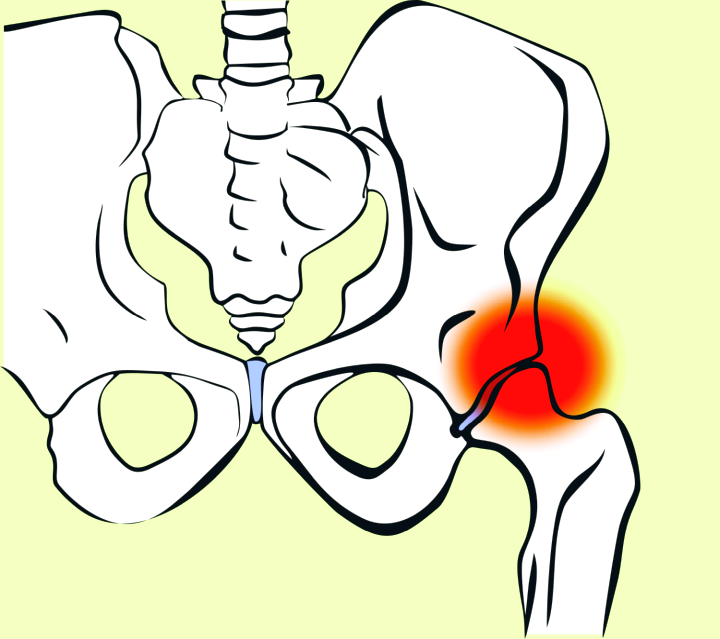To provide services at the highest level, we use cookies. Using the website requires you to choose settings related to their storage on your device. If you want to know what each type of cookie is used for, click the Details button below.
Hip pain – symptoms, causes, treatment14 marca 2022 |

Hip pain can have various sources, and understanding its causes is crucial for effective treatment and relief of discomfort in patients. One common cause of hip pain is inflammation of the hip joints, which especially occurs in older individuals. Conditions such as hip joint inflammation or systemic lupus erythematosus can lead to changes in the hip joints, resulting in pain and limited mobility of these body parts.
Degenerative joint disease, known as osteoarthritis, is also a prevalent cause of hip pain. It leads to the degeneration of joint cartilage. In the case of the hip joint, this can result in pain, stiffness, and loss of function for the patient. It should be differentiated from cartilage damage due to injury. Hip pain often results from injuries such as fractures, dislocations, contusions, or muscle strains in the hip area. Even minor injuries can lead to pain and loss of joint function.
Some cases of hip pain result from serious issues with nerve roots, mainly radicular syndromes, which can manifest as very severe radiating hip pain down the leg. Similar symptoms can also be caused by some cancers, particularly those located in the hip area.
Physical activity can also lead to strains and overuse that result in hip pain. This is a common cause of hip pain in athletes. Besides, some structural abnormalities, including hip dysplasia or hip socket dislocation, can lead to pain and other symptoms.
Less common are infections of the hip joint, which can also cause severe pain. They are usually associated with fever and swelling around the hip joint. Another rare cause is autoimmune diseases, such as systemic lupus erythematosus or systemic sclerosis, which can cause pain.
It is important to avoid excessive stress on the hip joint, especially if you lead an active lifestyle. So, try to avoid lifting weights that are too heavy for your strength, and also avoid overstraining and excessive effort during the day. Pay attention to your body posture, especially when sitting. Try to sit up straight, keeping your hips level.
Hip pain can indicate various health issues, such as injuries, joint inflammation, muscle problems, and even spine conditions. It is often a sign that something is not functioning correctly in the hip joint or its surroundings. It can also be the first symptom of improper sleep hygiene or an unhealthy lifestyle.
If you experience hip joint pain, you should consult a doctor. They will conduct a medical history and physical examination, and may also order imaging tests such as X-rays or MRI to accurately diagnose the cause of the pain and recommend appropriate treatment. Treatment may involve physical therapy, pain medications, and in some cases, even surgical intervention. Psychoeducation is also important.
Hip pain can manifest not only as sharp pain but also as numbness, tingling, or discomfort around the hip joint. The hip joint is located in the central part of the body at the level of the waist, on the sides of the spine. Therefore, hip pain can radiate to the buttocks, thighs, knees, or other areas around the hip joint. It can be mistaken for other conditions as a result.
Distinguishing between hip pain and back pain can be challenging because these areas of the body are interconnected. However, hip pain is typically located closer to the central part of the body, whereas back pain is more associated with the vertebrae and may radiate along the spine. Many structures come into play, including potential fascial difficulties. Consultation with a doctor and imaging studies will aid in an accurate diagnosis.
Hip pain when walking can have various causes, such as arthritis, injuries, or hip joint inflammation. It may result from excessive stress on the joint or improper muscle function. If you experience hip pain while walking, you should consult a doctor to determine the cause of the pain and the necessary treatment. Consulting a physiotherapist is also advisable. Do not attempt to self-diagnose or self-treat such conditions.